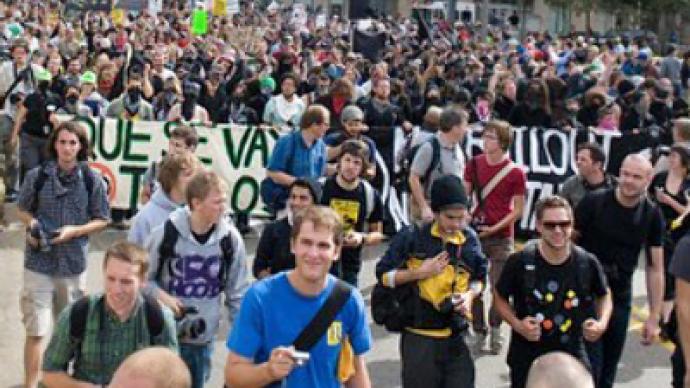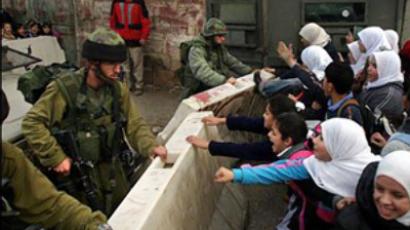Who does this government consider an enemy?

More than 1,000 police officers descended on fewer than 300 university students. The police came from all corners armed with tear gas, high-tech military weapons and batons, surrounding them completely.
By Luke Rudkowski
The students were cornered, beaten, tear gassed, thrown to the floor and arrested – all for gathering inside a public park to express their political opinions.
This scene did not happen in a Third World country in the midst of a revolution. It occurred in Pittsburgh during the G20 Summit. I was inside this crowd of 300 students and, along with them, was beaten and chased while trying to leave the landscape of shields and batons.
The police kept news crews away and told everyone to disperse, even as they surrounded and beat those who tried to walk away. Lashed with a baton on my back and legs, I was chased into a waiting group of police officers. After the beatings, they told us to lie on the floor. Then they put us in plastic handcuffs and sprayed us with tear gas.
I was taken to a detention center run by the National Guard, working in tandem with the FBI, where everyone was photographed and fingerprinted for a database. Throughout this long process, people were not allowed to use the bathroom and were denied medical treatment for hours. The detention center was filled with beaten and bloodied people, some of whom even defecated on themselves. An Iraq war vet who had been arrested spoke out. He said that detainees in Iraq get better treatment than this.
On my way to the detention center in the police bus, I sat next to two kids who had blood gushing from their heads and wore blood-soaked t-shirts. The person to my right had just been walking by the scene. Because he was at the wrong place at the wrong time, he was beaten and arrested along with everyone else.
Then, along with five others, I was deemed “violent” and sent to the main jail in Pittsburgh. While being transferred, I had a conversation with the detention officers about our eroding freedoms in America. I was told I shouldn't be protesting, but rather thanking Blackwater for protecting our freedom in Iraq. When I brought up the fact that Blackwater murdered and raped innocent civilians in Iraq, I was thrown violently into a bus and told: “Have fun in jail, idiot.”
Arriving at the jail, still unaware of the charges against me, policemen stormed the bus and placed their batons right next to my head, ready to strike. I faced them down for 20 minutes without saying a word, then I was thrown inside the jail and strip-searched.
Leaving the jail the next morning, I had absolutely nothing, not a dime in my pocket. All my possessions were held captive across town.
Only though luck and collect calls was I was able to contact a friend who could help free me. I left facing two criminal charges: disorderly conduct and failure to disperse.
During the G20, police officers from all around the country were summoned to Pittsburgh by the federal government. It was a massive movement, militarizing the police to prevent American citizens from engaging in their most important and sacred right – to peacefully assembly and address their grievances.
The main purpose of a military is to fight an enemy, but when the police become the military and work with the military against its own people, we have to ask: Who does this government consider its enemies?
Luke Rudkowski is a social justice activist and a founder of WeAreChange. He lives in New York.














